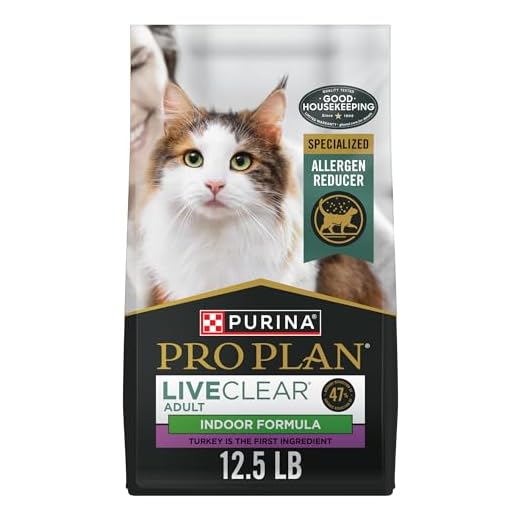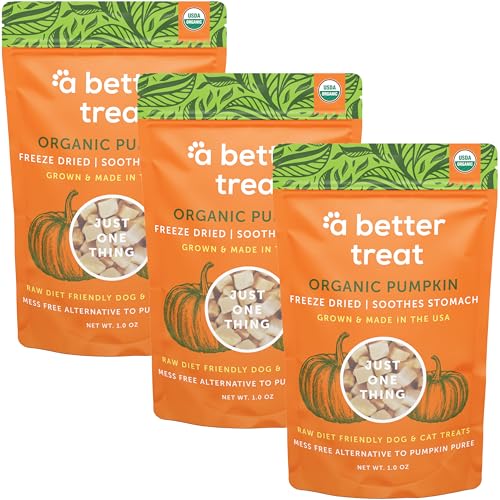




For those in their golden years, selecting a feline companion can significantly enhance daily life. Certain breeds stand out for their gentle demeanor, low maintenance needs, and affectionate nature. This article provides insights into the most suitable breeds and characteristics to consider when adopting a pet.
This guide is crafted for older adults looking to add a four-legged friend to their household. It highlights breeds that are known for their calmness and companionship, ensuring that the transition into pet ownership is smooth and enjoyable.
Key recommendations include breeds like the Ragdoll and British Shorthair, which are known for their friendly personalities and ease of care. You’ll also learn about the importance of considering the animal’s temperament, energy levels, and grooming requirements, all tailored to fit a relaxed lifestyle. With the right information, finding a loving and suitable companion becomes a rewarding experience.
Ideal Felines for Older Adults
Choosing a pet can greatly enhance the quality of life for older individuals. Certain breeds exhibit traits that align well with the lifestyle and needs of mature companions.
Calm and affectionate breeds are generally the most suitable. They tend to have lower energy levels and are often more adaptable to quieter environments.
Characteristics to Consider
- Temperament: Look for gentle and friendly dispositions. These animals often enjoy companionship without being overly demanding.
- Size: Smaller breeds typically require less space and are easier to manage.
- Maintenance: Short-haired varieties usually demand less grooming, which can be beneficial for those with limited mobility.
- Health: Some breeds are known for their longevity and fewer health issues, contributing to a more stable companionship.
Additionally, consider adopting from a shelter. Many older animals are already trained and possess a calm demeanor, making them ideal companions for those seeking a loving friend.
By focusing on specific traits and characteristics, older adults can find a suitable companion that fits their lifestyle and enhances their daily routines.
Low-Maintenance Breeds Ideal for Older Adults
Choosing a feline companion that requires minimal upkeep can significantly enhance the quality of life for older individuals. Certain breeds are naturally more independent and have lower energy levels, making them well-suited for a quieter lifestyle.
Felines known for their relaxed demeanor and lower grooming needs can be particularly beneficial. These animals typically enjoy lounging and require less interactive playtime, allowing older adults to enjoy their company without demanding extensive care routines.
Characteristics of Low-Maintenance Felines
- Calm Temperament: Many breeds exhibit a laid-back personality, reducing stress and promoting a peaceful environment.
- Minimal Grooming: Some breeds have short coats that do not require regular brushing, making maintenance easier.
- Independent Nature: These animals can entertain themselves and do not require constant attention.
- Moderate Activity Level: Breeds that enjoy short bursts of play rather than prolonged activity align well with a relaxed lifestyle.
When selecting a companion, consider adopting from a shelter, as many gentle and low-maintenance animals are in need of homes. Paying attention to the individual personality of each animal can help ensure a good match.
| Breed | Grooming Needs | Activity Level |
|---|---|---|
| Shorthair | Low | Moderate |
| British Shorthair | Low | Low |
| American Shorthair | Low | Moderate |
These characteristics make certain breeds particularly appealing. By choosing a breed that aligns with a more relaxed lifestyle, one can enjoy companionship without the burden of extensive care routines.
Calm and Affectionate Companions for Seniors
Choosing a gentle and loving pet can significantly enhance the quality of life for older individuals. These animals often provide companionship, emotional support, and a sense of purpose, which can be especially beneficial in later years.
When considering a pet that thrives in a serene environment, certain breeds stand out due to their temperament and nature. Animals that are known for their calm demeanor and affectionate interactions can be ideal partners for those seeking comfort and companionship.
Characteristics of Ideal Companions
Look for pets that exhibit the following traits:
- Gentleness: Animals that are naturally calm and less prone to aggressive behavior can create a peaceful atmosphere.
- Affectionate Nature: Pets that enjoy cuddling and physical contact can provide emotional warmth and reduce feelings of loneliness.
- Low Energy Levels: Companions that don’t require extensive playtime or exercise can fit well into a more relaxed lifestyle.
Some breeds known for these features include:
- Ragdoll: Known for their relaxed nature, they often enjoy being held and petted.
- British Shorthair: Their calm demeanor makes them wonderful companions who enjoy lounging with their owners.
- Persian: These gentle creatures prefer a quiet life and are known for their affectionate personalities.
Ultimately, finding a loving companion can provide emotional enrichment and a sense of connection. Taking the time to evaluate the personality and needs of both the individual and the pet will lead to a fulfilling relationship.
Choosing Low-Allergen Feline Companions
For individuals sensitive to allergens, selecting a feline friend can be challenging. Certain breeds produce fewer allergens, making them more suitable for those with sensitivities. These animals can provide companionship without triggering uncomfortable reactions.
Among the breeds known for lower allergenic properties, some are particularly well-suited for a calm and peaceful environment. Many of these types have unique temperaments that cater to a more relaxed lifestyle, perfect for those seeking companionship.
Characteristics of Allergy-Friendly Breeds
When considering a feline for allergy-sensitive individuals, look for breeds that produce less Fel d 1 protein, a common allergen found in cat saliva and skin. Some breeds exhibit traits that minimize shedding and dander, which can further reduce allergic reactions.
- Hairless Variants: These breeds have minimal fur, significantly lowering dander accumulation.
- Low-Shedding Breeds: Some breeds shed less fur, which helps keep allergens at bay.
- Calm Temperament: Many allergy-friendly types are known for their gentle and easygoing nature, ensuring a peaceful coexistence.
It’s also advisable to spend time with a specific breed before making a decision. This allows potential owners to assess their reactions and determine compatibility. Regular grooming and cleaning can further help manage allergens in the home, creating a comfortable environment.
Choosing a companion that aligns with health considerations can enhance quality of life. By selecting the right breed, individuals can enjoy the benefits of companionship while minimizing allergy-related issues.
Small Cat Breeds Perfect for Limited Living Spaces
Choosing a feline companion that thrives in compact environments can enhance the living experience for those with limited space. Smaller breeds are often more adaptable and require less room to roam, making them ideal for apartments or small homes.
These diminutive companions typically have lower energy levels and are content with indoor play. They can easily find cozy spots for napping, ensuring that they stay comfortable without needing extensive space.
Characteristics of Ideal Breeds
When selecting a small breed, consider the following traits:
- Size: Compact stature allows for easier movement within confined areas.
- Temperament: Generally, smaller breeds tend to have gentle and affectionate personalities, making them great companions.
- Exercise Needs: Lower physical demands mean they can engage in short play sessions rather than requiring extensive outdoor time.
Additionally, some breeds are known for their adaptability to various living conditions, thriving in smaller quarters while still providing companionship and joy.
| Breed | Weight Range | Personality Traits |
|---|---|---|
| Breed A | 6-10 lbs | Affectionate, Playful |
| Breed B | 5-8 lbs | Calm, Friendly |
| Breed C | 7-11 lbs | Curious, Social |
By focusing on smaller breeds, individuals can find a companion that fits seamlessly into their lifestyle, providing comfort and companionship without the need for extensive space.
Tips for Choosing a Senior-Friendly Feline
Select a companion that is known for its calm demeanor. Breeds with a laid-back personality, like the Ragdoll or British Shorthair, tend to adapt well to quieter living situations and can provide the necessary comfort and companionship.
Consider the age and energy level of the animal. An older pet often requires less exercise and may be more suited for a relaxed lifestyle. These animals may have already settled into a routine, making them easier to care for.
Assessing Compatibility
When meeting potential furry friends, observe their behavior. Look for those that are friendly and sociable. A gentle approach can help ease the process of bonding.
- Temperament: Prioritize animals that are not overly active or aggressive. A sweet-natured individual can be a great companion.
- Health considerations: Choose an animal that has been checked for common health issues, ensuring a smoother transition into your care.
Evaluate the pet’s grooming needs. Short-haired individuals typically require less maintenance, making them a suitable choice for those who may have difficulty with extensive grooming routines.
- Visit local shelters to find animals in need of homes. Many shelters have older animals that are often overlooked.
- Ask staff about the animal’s history and behavior to find a suitable companion.
Be mindful of dietary needs. Older pets may have specific nutritional requirements, so consult with a veterinarian for guidance on the best diet for your new friend.
Lastly, ensure that your living space is safe and accessible. Remove any hazards that could pose a risk, allowing for a comfortable environment for both you and your new companion.
Health Considerations When Adopting a Feline Companion for Older Adults
Choosing a feline companion involves understanding health-related aspects that impact both the new pet and its future owner. Assess the pet’s age, health status, and temperament before making a decision.
Regular veterinary care and vaccinations are essential. An initial health examination should be conducted immediately after adoption. This allows for early detection of potential health issues that could affect both the animal and the human caregiver.
Key Health Factors to Consider
- Age of the Animal: Kittens require more attention and energy, while adult or senior animals may be calmer and more suitable for less active individuals.
- Health Conditions: Choose an animal with manageable health conditions. Chronic issues may require additional care and resources.
- Temperament: Select a pet with a gentle and affectionate nature. This can foster a positive bond and reduce stress for the owner.
- Allergies: Consider possible allergies to pet dander. Conduct allergy tests if necessary before adoption.
- Mobility: An older adult may benefit from a pet that is easy to care for and does not require extensive physical activity.
Taking these health considerations into account ensures a harmonious relationship between the individual and their new feline friend, enhancing quality of life for both.
Best cats for seniors
Features
| Part Number | 542907 |
| Model | 542907 |
| Warranty | With nearly 50 years of scientific research and observation, Royal Canin continues to deliver targeted nutrition to feed every pet’s magnificence. Not satisfied? Then neither are we. Our formulas are 100% satisfaction guaranteed. (Just contact us for more details.) |
| Color | White/brown |
| Size | 7 Pound (Pack of 1) |
Features
| Part Number | ax1120 |
| Model | Ax-litter1 |
| Warranty | no |
| Color | grey |
| Size | X-Large |
Features
| Model | SSSLB01 |
| Warranty | Return and exchange is available within 30 days of purchase, product must be in its original condition. |
| Color | Grey |
| Size | X-Large |
Features
| Part Number | 00038100191380 |
| Model | 00038100191380 |
| Color | Other |
| Release Date | 2022-03-25T00:00:01Z |
| Size | 12.5 Pound (Pack of 1) |
Features
| Part Number | NHC15004 |
| Size | 10 Pound (Pack of 1) |
Features
| Model | CAT-01 |
| Warranty | 1 |
| Color | Black |
| Size | Set of 4 PCS Cat Wall Shelves |
Features
| Part Number | 3 |
| Model | Q3-TC-CH |
| Color | Brown Cat |
| Is Adult Product | |
| Size | 1 Count (Pack of 1) |
Video:
FAQ:
What are the best cat breeds for seniors looking for companionship?
Several cat breeds are particularly well-suited for seniors seeking companionship. Ragdolls are known for their gentle and affectionate nature, making them ideal lap cats. Siamese cats are also great companions due to their social and vocal personalities. Another good option is the British Shorthair, which is calm and easygoing. These breeds tend to bond closely with their owners and provide a comforting presence, which can be very fulfilling for seniors.
How do I choose the right cat for an elderly family member?
Choosing the right cat for an elderly family member involves several factors. Firstly, consider the senior’s lifestyle and living situation. A calm and less active cat may be more suitable for someone with limited mobility. Look for breeds known for their affectionate and easygoing temperaments, such as the Maine Coon or the Persian. It’s also important to think about the cat’s age; an adult cat might be preferable as they tend to be less demanding than kittens. Additionally, visiting local shelters can be a great way to find a cat that matches the personality and needs of the senior. Finally, ensure that the cat’s care requirements align with the senior’s ability to provide them. This includes considering factors like grooming needs and health maintenance.











